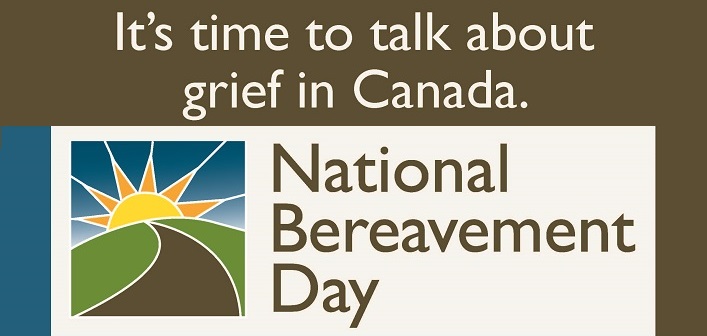It’s time to talk grief and bereavement in Canada, says the Canadian Hospice Palliative Care Association (CHPCA).
The organization notes that “as a society, we are so focused on prolonging life and curing illness that very little thought is given to what happens to us during our end of life journey and to those we leave behind. Improving the end of life care process also means allowing caregivers and family members who have lost a loved one the time to grieve, to remember, and to heal.”
To that end, the CHPCA has designated November 21, 2017 as the inaugural National Bereavement Day in Canada, and invites all Canadians to “reflect on the importance of relationships past and present, to think about those who have passed away from our lives, and to help advocate for supports at the provincial and national levels for grieving Canadians.”
Sharon Baxter, CHPCA’s Executive Director notes that “more than 260,000 Canadians die each year, and for every one person who has died there are, on average, five or more loved ones who live on. We all experience and handle bereavement and grief differently, and this reality has created the need to clarify what resources are available to Canadians dealing with an end-of-life care event.”
Bereavement support is for those who are grieving before, during, and after the course of a loved one’s end-of-life journey, says the CHPCA, and they encourage people to reflect on and discuss their end-of-life wishes with the people closest to them.
Local grief support is provided by Hospice Huntsville, which has a variety of programs and resources available for children, teens and adults. The programs and resources are provided free of charge to anyone who needs them, whether their loss is recent or not, and whether their family has previously used Hospice’s services or not.
A twice-annual adult grief support group program runs in the spring and fall for seven weeks. Trained volunteer facilitators help people coping with loss of a loved one. Individualized one-on-one sessions are also available any time of the year — Program Coordinator Jane Weiland carefully matches people with a trained Hospice volunteer facilitator. There is also a grief support walking group for people who have already gone through a Hospice Huntsville grief support program.
Children and teens need grief support, too, and Hospice Huntsville has programs to help them cope with the loss of a loved one or something meaningful in their lives. (Read more on Doppler here: Hospice Huntsville helps grieving children and teens through special programming.)
In addition to the grief and bereavement support programs, Hospice Huntsville also has books and pamphlets available on a wide range of topics for adults, children and caregivers. You’ll also find a list of recommended reading for adults here.
The holidays can be a particularly difficult time for people who are grieving loved ones. Hospice offers some ways to help with grief at Christmastime on their website here.
All of Hospice’s grief support are free of charge to all community members, as are all of the organization’s other programs, and it relies on donations to keep them that way. Hospice must raise 50 per cent of its operating budget every year – about $534,000 – through various giving opportunities like annual fundraisers, its wish list and its 500 Club. Those who wish to contribute directly to grief and bereavement support can purchase books for Hospice’s resource library via its Wish List (see below) or make a general donation.
For more information on grief support programs at Hospice Huntsville, contact Jane Weiland, Program Coordinator at (705) 789-6878 ext. 200 or [email protected].
Don’t miss out on Doppler! Sign up for our free newsletter here.



0 Comments